
Emma O'Donnell
Research Assistant, Environmental Change Institute and PhD Candidate, Nature-based Solutions Initiative, University of Oxford
Emma holds a B.A in Ecology and Evolutionary Biology from Princeton University and a MSc. in Sustainability, Enterprise and the Environment from University of Oxford. She has research experience in Bermuda and Palau on coral reef and reef fish ecology and on the nature-related risks of UK-based financial institutions. Emma previously worked at Aon, a financial services firm, in their Climate Change Unit on analytics and reinsurance products for climate- and ESG-related risks in London and New York. Currently, she is a PhD student in Biology under the supervision of Nicola Ranger (Environmental Change Institute (ECI)) and Nathalie Seddon (Nature-based Solutions Initiative). Alongside her PhD, Emma serves on the Advisory Board for BSI's Standards for Biodiversity Markets and has holds a research assistant position with the ECI's Global Finance and Economy group, focusing on greening finance for nature.
Less ![]()

Emma Pakula
Senior Research and Policy Officer, Burnet Institute
A senior research and policy officer at The Burnet Institute in COVID-19 and health emergencies. She is experienced in program management and policy in public health, health system strengthening, emergency response and international development.
Less ![]()

Emma Palmer-Cooper
Lecturer in Psychology, Centre for Innovation in Mental Health, University of Southampton
Dr Emma Palmer-Cooper is a Lecturer in Psychology within the Centre for Innovation in Mental Health. My research primarily focuses on self-awareness in relation to mental health and related thought processes, psychological wellbeing, and creativity. I have a focus on developing digital interventions (eHealth) for mental health support, and understanding user attitudes towards AI.
I am also interested in Public Engagement, involving patients and the public in the design and communication of psychological and healthcare research.
Less ![]()

Emma Power
Associate Professor Emma Power is a speech pathologist and academic at the University of Technology Sydney. She has worked in the area of communication disorders following acquired brain injury for over 23 years in a variety of clinical and academic positions.
Less ![]()

Emma Rettner
PhD Candidate in Materials Science and Engineering, Colorado State University
Emma's research interests include polymer chemistry, block copolymer design and organic materials.
Less ![]()


Emma Sherratt
Senior Research Fellow in Ecology & Evolutionary Biology, University of Adelaide
I am an evolutionary biologist, interested in understanding how the Earth's biodiversity came to be. In 2011, I completed a PhD at the Natural History Museum, London, on a group of cryptic amphibians called caecilians. They are limbless, head-first burrowing animals, and I used museum-based collections and cutting-edge imaging techniques to investigate how their skull evolved.
Since then I have held research appointments at institutions including Harvard University, Australian National University and University of Adelaide. I have studied a diversity of animals including rabbits, bivalved scallops, lizards, frogs and their tadpoles, and sea snakes. I am an expert in the statistical analysis of organismal form, a software creator, and a passionate educator.
Less ![]()

Emma Soye
Researcher, Queen's University Belfast
Dr Emma Soye has a PhD in Social Work and Social Care. She is the author of 'Peer Relationships at School: New Perspectives on Migration and Diversity', published by Bristol University Press. Emma has conducted research on social cohesion for international organisations including UNICEF, the International Rescue Committee, and Save the Children UK.
Less ![]()



Emma Thomson
Clinical Professor of Infectious Diseases and Associate Director, MRC-Centre for Virus Research, University of Glasgow
I am an infectious diseases physician and researcher specialising in virus research. I have a strong interest in emerging viral infections in sub-Saharan Africa
Less ![]()
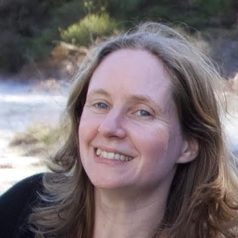
Emma Tomlinson
Associate Professor, Trinity College Dublin
MSci in Geology - University of Bristol, UK (2001)
PhD in Geochemistry - University College London, UR (2005)
Thesis title: The role of fluid in the growth of natural diamond
Less ![]()

Emma Turley
Senior Lecturer in Criminology, CQUniversity Australia
Dr Emma L Turley is a Senior Lecturer in Criminology and a Chartered Psychologist with the British Psychological Society. Emma is a critical psychologist and has a broad range of interdisciplinary research interests that span criminology and psychology. Her specialist areas of interest include gender, social justice, inequalities, LGBTQI+ issues, feminism, sexualities, and the digital world. She is also interested in qualitative research methods, especially phenomenology and experiential research, and the use of innovative data collection techniques.
Emma has published in the areas of sexualities, particularly marginalised sexual cultures, subculture, gendered violence, social media, gender inequalities, women’s wellbeing, and activism. Emma is a co-editor of the British Psychological Society's Psychology of Women & Equalities Review, and editorial advisory board member for British Mensa's Androgyny journal.
Less ![]()
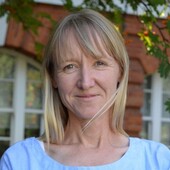


Emma Wilson
Lecturer in Marketing, Nottingham Trent University
Expert in tourism and event management and international bid development and delivery. I lecture on business, marketing and tourism.
Less ![]()

Emma Worden-Sapper
PhD Student in Molecular, Cellular and Developmental Biology, University of Colorado Boulder
Less ![]()

Emma A. Jane
Associate Professor, UNSW Sydney
Emma A. Jane - formerly published as Emma Tom - is an Associate Professor at UNSW Sydney. She researches the social implications of emerging technologies using complexity theory frameworks and transdisciplinary methods to interrogate the issues and consider proposed interventions. She has presented the findings of her research to the Australian Human Rights Commission, the Australian government's Workplace Gender Equality Agency, and the Festival of Dangerous Ideas at the Sydney Opera House. Prior to her career in academia, Dr Jane spent nearly 25 years working in the print, broadcast, and electronic media. Over the course of her working life, she has received multiple awards and prizes for her scholarly work, her journalism, and her fiction. Her 11th book, Diagnosis Normal, is a hybrid memoir published by Penguin Random House in 2022. In her spare time, she enjoys coding with AI and using OpenAI's DALL·E 2 to generate images of exuberant axolotls on their way to queer discos.
Less ![]()

Emma C. Edwards
Career Development Fellow in Engineering, University of Oxford
Emma completed her BSc in mathematics at the University of North Carolina at Chapel Hill in 2012. She then worked as a research assistant for a year at the University of Edinburgh's Institute for Energy Systems, where she was introduced to wave energy. Emma completed her PhD at MIT in 2020, and her thesis, supervised by Professor Dick Yue, was titled ‘Optimization of the geometry of axisymmetric point absorber wave energy converters.’ She then held a part-time postdoctoral position at MIT with Professor Yue for a year.
She then completed a postdoctoral research fellowship from 2021-2023 at the University of Plymouth, working with Professor Deborah Greaves and Dr Martyn Hann, expanding her expertise to floating offshore wind turbines and physical modelling at one of the global hubs for offshore renewable energy research. From 2018-2022, in addition to her PhD and postdoctoral research, Emma competed as professional cyclist. In October 2023 she started as a Career Development Fellow in Engineering at St Peter's College, University of Oxford.
Her research focuses on fluid mechanics and its application to offshore renewable energy (ORE). Her main area of interest is around the hydrodynamics of wave-structure interaction, particular for floating bodies, and its impact on the performance of devices--principally floating offshore wind turbines and wave energy converters.
Less ![]()
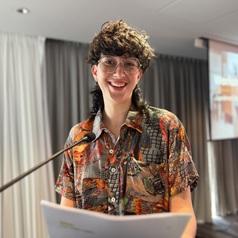
Emma F Jackson
Research fellow, Australian National University
Emma "Jacko" F. Jackson is a Research Fellow with the Global Institute for Women's Leadership at the Australian National University. Their research interests include transgender experiences, gendered violence, and LGBTQ experiences at work. Jacko holds a PhD in psychology from Macquarie University.
Less ![]()

Emma Forton Magavern
Clinical Research Fellow, Centre of Clinical Pharmacology and Precision Medicine, William Harvey Research Institute, Queen Mary University of London
Emma is a Medical doctor and a PhD candidate at the William Harvey Research Institute, QMUL, working with Professor Mark Caulfield. She completed a BA in English prior to her MD and subsequent MScs in Bioethics and Genomics. Through training in clinical medicine, humanities, genetics and pharmacology she has developed an interest in the scientific merits, clinical potential and implementation challenges of pharmacogenomics. She was co-secretary of the RCP/BPS working group on pharmacogenomics and led the ESC pharmacotherapy working group pharmacogenomics position paper.
Less ![]()

Emma G Duerden
Canada Research Chair, Neuroscience & Learning Disorders, Assistant Professor, Western University
Less ![]()


Emma Loosley Leeming
Professor of Middle Eastern and Caucasian Christianities, University of Exeter
Emma studied for a BA in History and History of Art at the University of York (1991-1994), where she specialised in the Medieval and Renaissance periods. She then worked back in time and took an MA (1994-1995) in Classical and Byzantine Art at the Courtauld Institute, University of London. It was during her MA that she discovered Late Antique Syria, which became the subject of her PhD thesis at the School of Oriental and African Studies (SOAS), University of London.
After graduating from SOAS in February 2001 she spent three years living and working as an archaeologist, fund-raiser, secretary and potato-peeler for the Community of Al-Khalil at Deir Mar Musa al-Habashi in Syria. The Community is dedicated to hospitality and Christian-Islamic dialogue and she spent the summers directing an archaeological excavation for the Community at their other monastery, Deir Mar Elian in Qaryatayn, and the rest of the year dealing with all English correspondence, greeting guests and helping with general chores (hence potato-peeling). During this period she was a visiting lecturer at SOAS and at the Université Saint Esprit de Kaslik in Lebanon. She also worked for the Abu Dhabi Ministry of Information as an archaeologist studying the artefacts found at a sixth-century monastery on the island of Sir Bani Yas.
In January 2004 she took up a position teaching Oriental Christian and Islamic Art at the University of Manchester and in 2010 she was appointed Senior Lecturer. During this time she was also a visiting lecturer at the Art University of Isfahan, Iran, the Ivane Javakhishvili Tbilisi State University, Georgia, the University of Tehran, the Teacher Training University of Tehran and the Amirkabir Polytechnic College, Tehran, Iran
She joined the University of Exeter in April 2013 and from 2012-2017 she worked on a five-year European Research Council funded project entitled Architecture and Asceticism: Cultural Interaction between Syria and Georgia in Late Antiquity exploring the purported Syrian evangelisation of Georgia in the fifth century and which sought to answer why the Georgians left the Oriental Orthodox fold to join with the Constantinopolitan Church in the early seventh century.
Since 2017 she has worked with the Georgian National Museum in Tbilisi on an initiative to widen participation in Heritage Education amongst children from ethnic, religious and linguistic minorities across Georgia.
Less ![]()

Emma Louise Gorman
Senior Research Fellow, University of Westminster
Emma is a Senior Research Fellow in the Centre for Employment Research, University of Westminster. As an applied economist, Emma’s research covers topics in education, labour economics and policy evaluation. Prior to joining the University of Westminster, she held appointments variously at Lancaster University, the University of Glasgow and the New Zealand Treasury, and has conducted research for the UK Department for Education, Social Mobility Commission and Department for Work and Pensions. Emma is a Fellow of the IZA (Institute of Labor Economics) and the GLO (Global Labor Organisation).
Less ![]()

Emmalee Ford
Conjoint Associate Lecturer in Medical Biochemistry, University of Newcastle
I research across the wide field of reproductive and sexual health, everything from abortions to vasectomy.
Our reproductive systems are so critical to our overall health and wellbeing. They’re responsible for the future of humankind, and yet they are so secretive and under-researched.
I am a multidisciplinary scientist with expertise in biology, public health, data science and education. I use my skills to collaborate with clinicians, health professionals, communities, and universities to improve reproductive health outcomes and increase access to sexual health education and services.
Less ![]()

Emmanuel Ameyaw
Researcher, Graduate School of Economics and Management, Tohoku University
Emmanuel Ameyaw is an economist and data scientist with a research interest in money and banking, macroeconomics, monetary economics, financial economics, applied macroeconometrics, central banking and financial institutions, development economics, and data analytics / data science in economics and finance. He obtained his PhD from Tohoku University in Sendai, Japan in 2023. He has authored several papers including
"The relevance of domestic and foreign factors in driving Ghana’s business cycle", "Business cycles in a cocoa and gold economy: Commodity price shocks do not always matter", "Hawkish shift in Ghana’s central bank’s monetary policy reaction function: a fiscal connection", among others.
Less ![]()

Emmanuel Destenay
Research Fellow, Université Paris 1 Panthéon-Sorbonne
Emmanuel Destenay received his PhD from Sorbonne University. He has held research fellowships at Oxford University, Stanford University, and University College Dublin. His first monograph, Shadows from the Trenches: Veterans of the Great War and the Irish Revolution (1918–1923) received an honorable mention from the American Conference for Irish Studies. Divergent Destinies, his second book, reexamines the interconnection between fears of military service and the rise of Irish republicanism between 1914 and 1918. He is currently finishing a monograph on American humanitarian interventions in France during World War I. He is a research fellow at Sorbonne University.
Less ![]()

Emmanuel Josserand
Emmanuel Josserand is a Professor of management at the University of Technology, Sydney, where he is the Director of the Center of Management and Organisation Studies. His current research interests relate to inter- and intra-organizational networks and social capital, including global supply networks and to individual identity.
Less ![]()

Emmanuel Oluwaseyi Atofarati
PhD Candidate, University of Pretoria
Publications:
Control of vortex shedding around a circular cylinder using bubble tabs in the laminar flow regime
EO Atofarati, AO Muritala, BO Malomo, SA Adio
Nigerian Journal of Technology 39 (4), 1108-1116 1, 2020
Assessing the factors affecting building construction collapse casualty using machine learning techniques: a case of Lagos, Nigeria
OO Awe, EO Atofarati, MO Adeyinka, AP Musa, EO Onasanya
International Journal of Construction Management, 1-9, 2023
The Evaluation of the Power Output of a Locally-Developed Micro Thermal Power Plant in Nigeria
A Morakinyo, EO Atofarati, A Asere
Ife Journal of Technology 28 (1), 18-27, 2021
Molecular Dynamics Simulation Research (From Atomic Fragments to Molecular Compounds)
EO Atofarati
Less ![]()
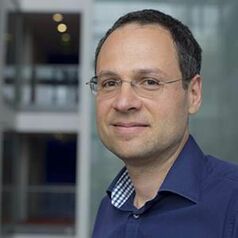
Emmanuel Pothos
Professor of Psychology, City, University of London
Emmanuel Pothos received a BSc in Physics from Imperial (1995) and DPhil in experimental psychology from Oxford (1998). At an undergraduate student at Imperial he received the Stainley Raimes Memorial Prize, for outstanding performance in first and second year mathematics. Emmanuel has worked at several universities, including Bangor University, Edinburgh University, Crete University, Swansea University, and, since 2009, City, University of London, where he has been a professor since 2014. He has been interested in several topics in cognitive science, including learning, categorization, similarity, language, and (more recently) decision making. He has been part of the quantum cognition research community from the very early days and has contributed some of the early models, for example, concerning the disjunction effect and the conjunction fallacy. He has co-authored two major reviews of the quantum cognition research programme, for the Behavioral and Brain Sciences (2013) and the Annual Review of Psychology (2022). He continues to actively develop quantum cognitive models and explore the potential and boundaries of quantum theory for behavioural modelling. He has 120 journal articles has his work has been funded by several organisations, including the ESRC, the AFOSR, the ONRG, and the Leverhulme Trust.
Less ![]()

Emmanuel Urquieta
Professor of Space Medicine and Emergency Medicine, Baylor College of Medicine
Emmanuel Urquieta holds a medical degree from Anahuac University in Mexico City and a master of science in aerospace medicine from Wright State University in Dayton, Ohio.
Emmanuel completed a diploma in emergency medicine and then worked for Mexico City’s Department of Public Safety as a flight surgeon in the Helicopter Emergency Medical Service "Condors" where he participated in hundreds of rescue missions and aeromedical evacuation within the Mexico City metropolitan area. He holds a private pilot certificate and an open water scuba diver certificate.
He has volunteered in medical missions in underserved regions throughout Mexico and in Nigeria, Africa. He was a volunteer paramedic for the Mexican Red Cross for more than 5 years.
Emmanuel has participated as a crew member of an analog mission at NASA Johnson Space Center: in 2017 he was selected to participate in the Human Exploration Research Analog (HERA) XI mission where he spent 30 days in a capsule simulating a deep space long duration mission. This mission aimed to understand the behavioral and physiological effects from isolation and confinement.
He currently serves as scientist at the NASA funded Translational Research Institute for Space Health, where he manages different research projects in different areas going from radiation protection to psychological changes during deep spaceflight.
Dr. Urquieta has a dual faculty appointment as an Assistant Professor in the Department of Emergency Medicine and Center for Space Medicine at Baylor College of Medicine. He is also a FAA private pilot and scuba diver.
During his free time he likes to design LEGO rocket ship models and spend time with his wife and daughters.
Less ![]()
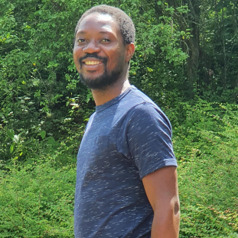
Emmanuel Junior Zuza
Senior lecturer, Royal Agricultural University
Emmanuel is a distinguished academic renowned for his contributions to education and sustainable development. With a Ph.D. in Environmental Science and Sustainability, his research focuses on environmental sustainability and community development, earning him recognition in numerous peer-reviewed journals.
Less ![]()
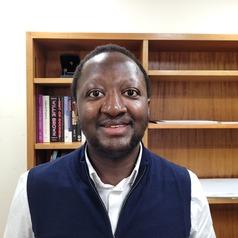
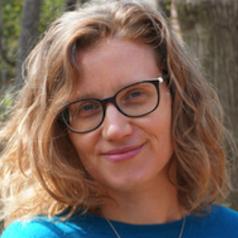
Emmanuelle Bernheim
Professeure titulaire, Faculté de droit, titulaire de la Chaire de recherche du Canada en santé mentale et accès à la justice | Full Professor, Faculty of Law, Canada Research Chair on Mental Health and Access to Justice, L’Université d’Ottawa/University of Ottawa
Emmanuelle Bernheim est professeur titulaire à la Faculté de droit, Section de droit civil, de l'Université d'Ottawa et titulaire de la Chaire de recherche du Canada en santé mentale et accès à la justice. Ses recherches portent sur le rôle du droit et de la justice dans la production et la reproduction des inégalités. | Emmanuelle Bernheim is a full professor in the Faculty of Law, Civil Law Section, at the University of Ottawa and holds the Canada Research Chair in Mental Health and Access to Justice. Her research focuses on the role of law and justice in the production and reproduction of inequalities.
Less ![]()
- Market Data





















